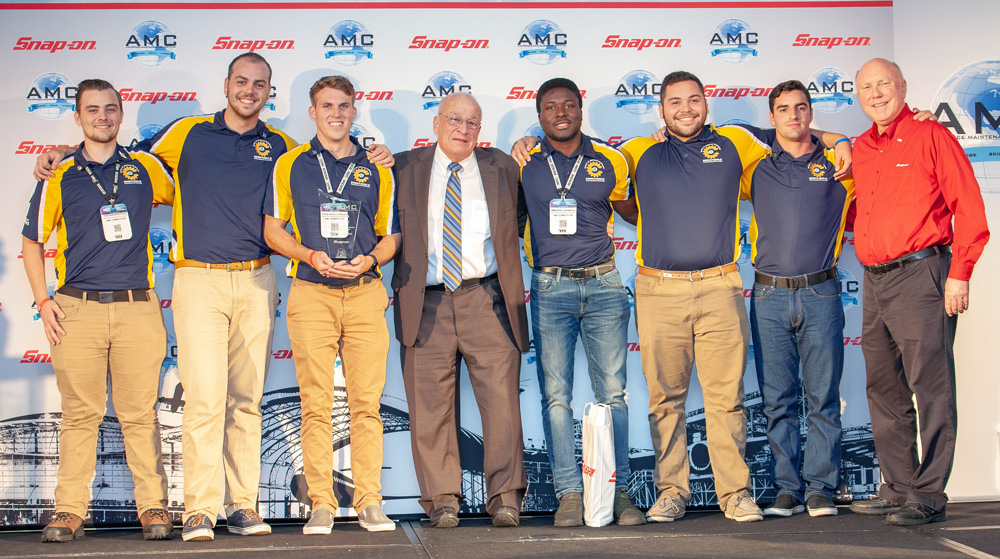An Aviation Maintenance Science (AMS) team from Embry-Riddle claimed first place in an international competition, overtaking challengers from 27 other schools by more swiftly and accurately completing 30 timed tasks.
Six undergraduate students participated in the 2019 Aerospace Maintenance Competition, organized by the Aerospace Maintenance Council and presented by Snap-on Industrial, April 9-11, 2019, in Atlanta, Georgia.
“Thanks to the exemplary training Embry-Riddle provides to its students, we can see the future of aviation maintenance is in good hands,” says Bart Wignall, president of Snap-on Industrial, in an award letter to the team.
“We are proud of our students for their technical performance, as well as their sportsmanship,” says Embry-Riddle President P. Barry Butler. “They exemplified the Eagle spirit, demonstrating the highest standards of aviation safety and responsibility.”
In addition to winning the No. 1 ranking in the competition’s School Division, two students on the Embry-Riddle team won individual awards. Ben Henriquez won an AMC Professionalism Award and Immanuel Bankole secured a Future Maintenance Professional Award, a scholarship provided by PistonPower and the trade association PAMA.
The other winning AMS team members were Tristan Anderson, Christopher Lambert and Chris Culver. Greg Algarin served in a critical backup role.
“It was an outstanding learning experience for our students,” says Chris Piccone (’11, ’18), laboratory instructional specialist, who managed and coached the team, along with Earl Sault Jr. (’98), AMS training and supply specialist. “This year, they were exposed to advanced, modern tools and top-of-the-line diagnostic equipment.”
The 2018 Boeing Pilot & Technician Outlook estimates a worldwide need for 754,000 new aviation maintenance technicians over the next 20 years. Exhibitions such as the Aerospace Maintenance Competition help raise awareness of the importance of aviation maintenance technicians, Piccone says.
Embry-Riddle’s participation in the competition would not have been possible without generous travel support from Airbus, as well as advance practice time at JetBlue’s training facilities. “We are very grateful for their support,” Piccone says.
